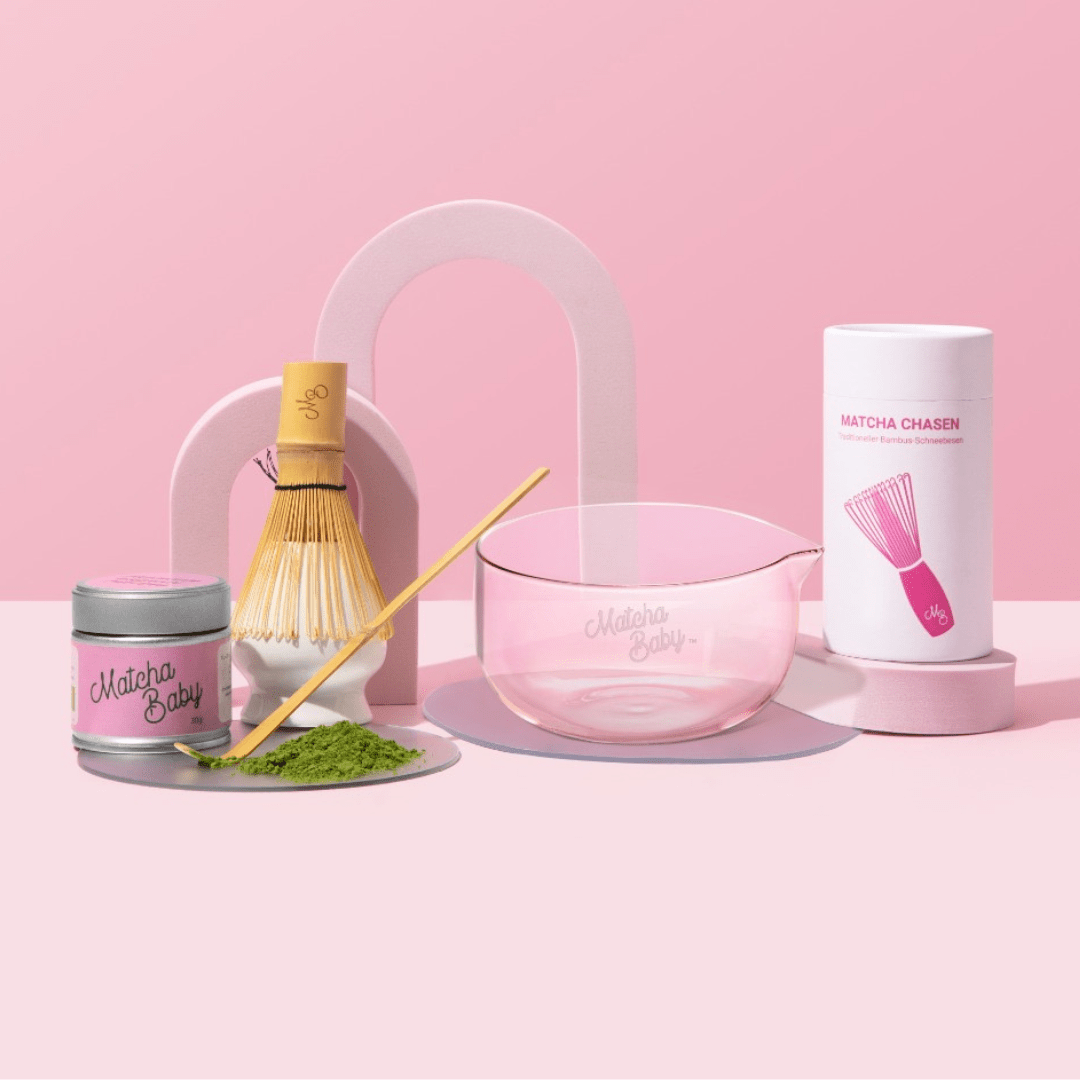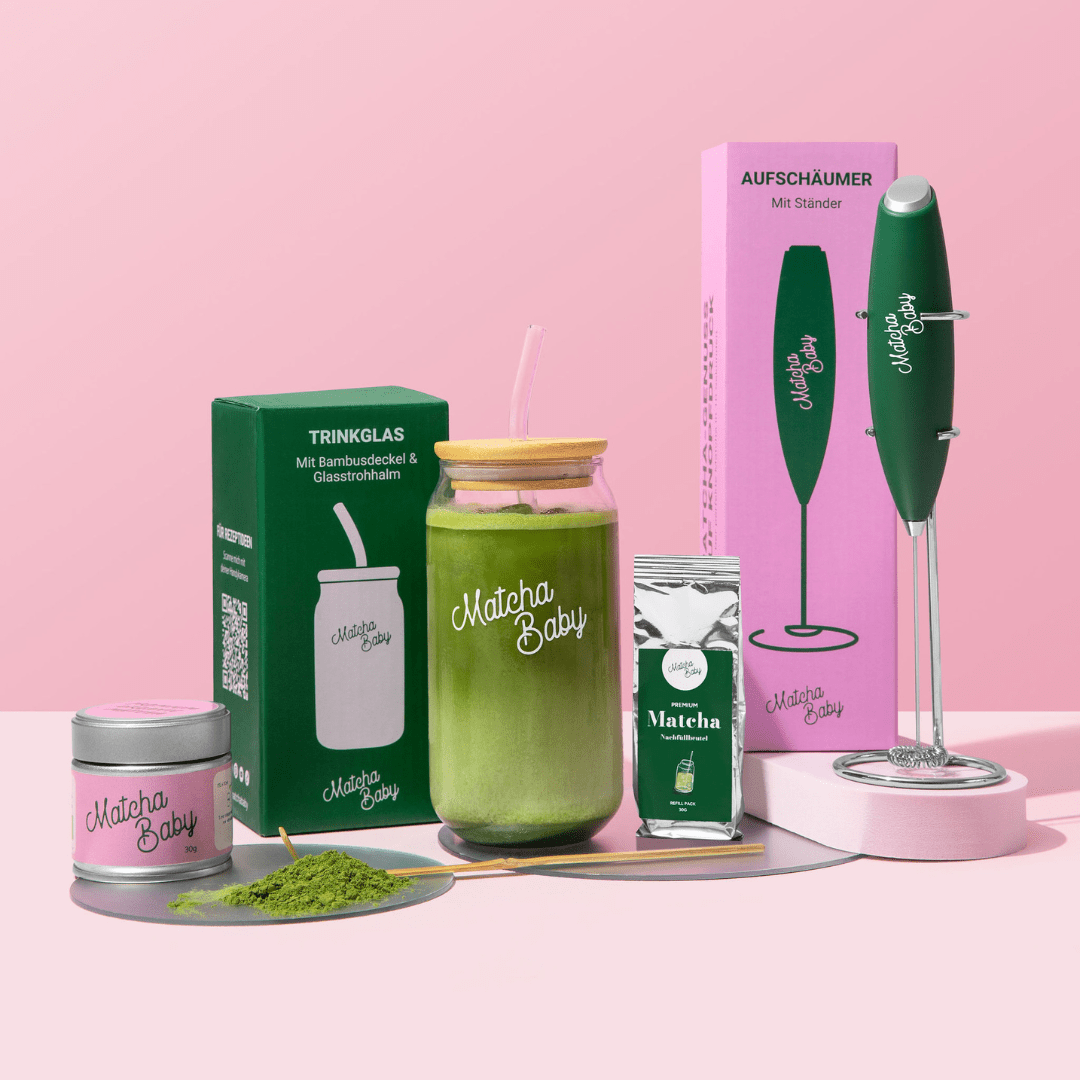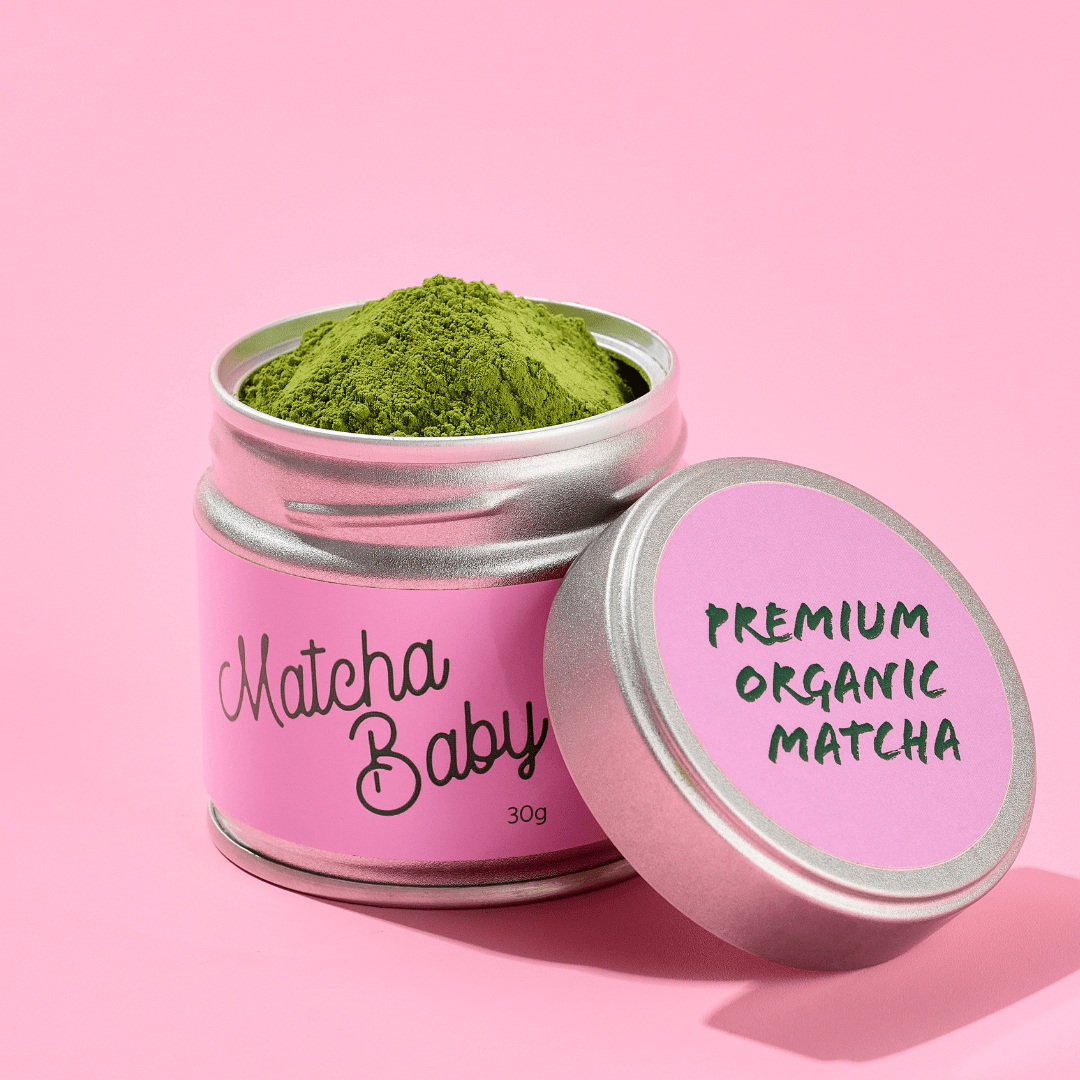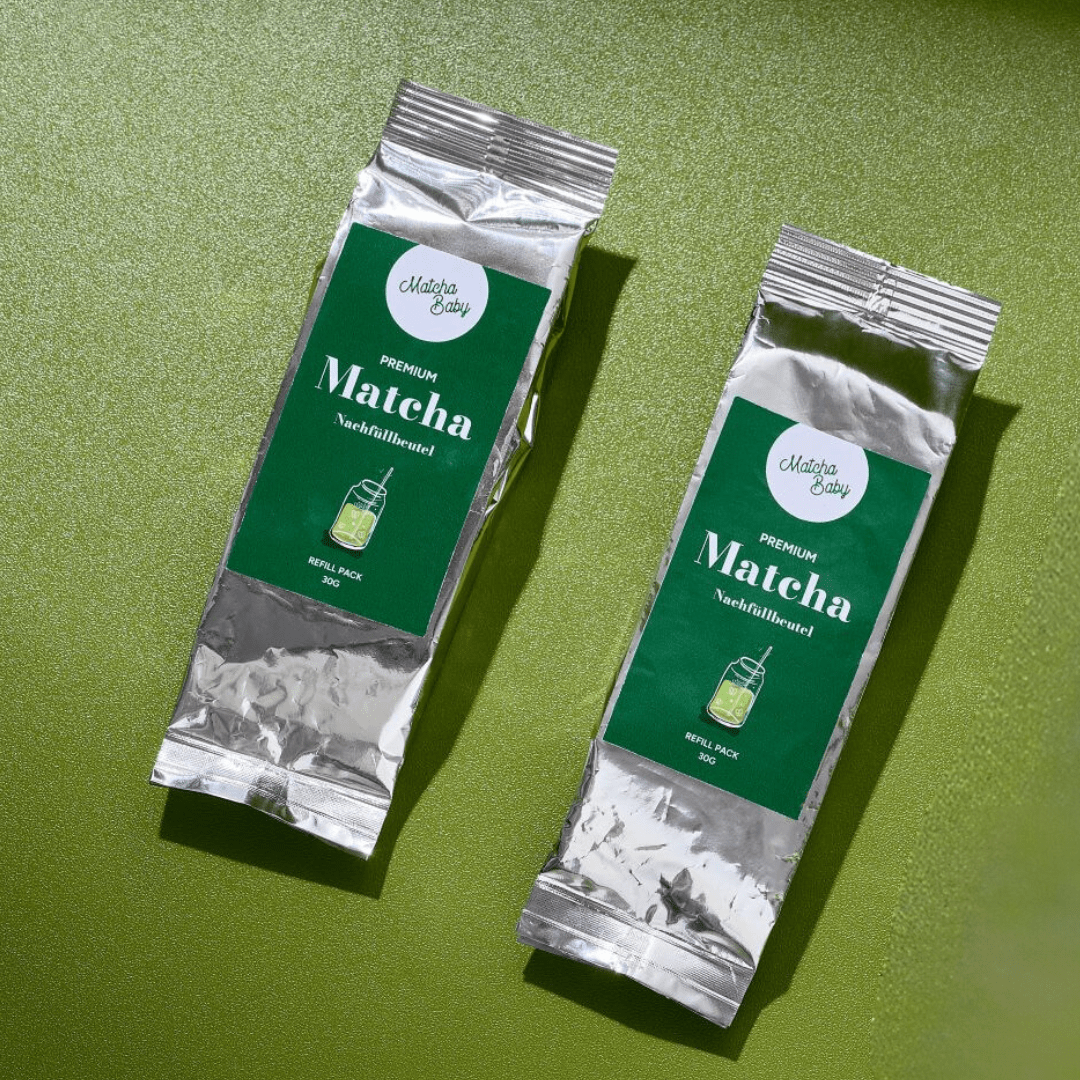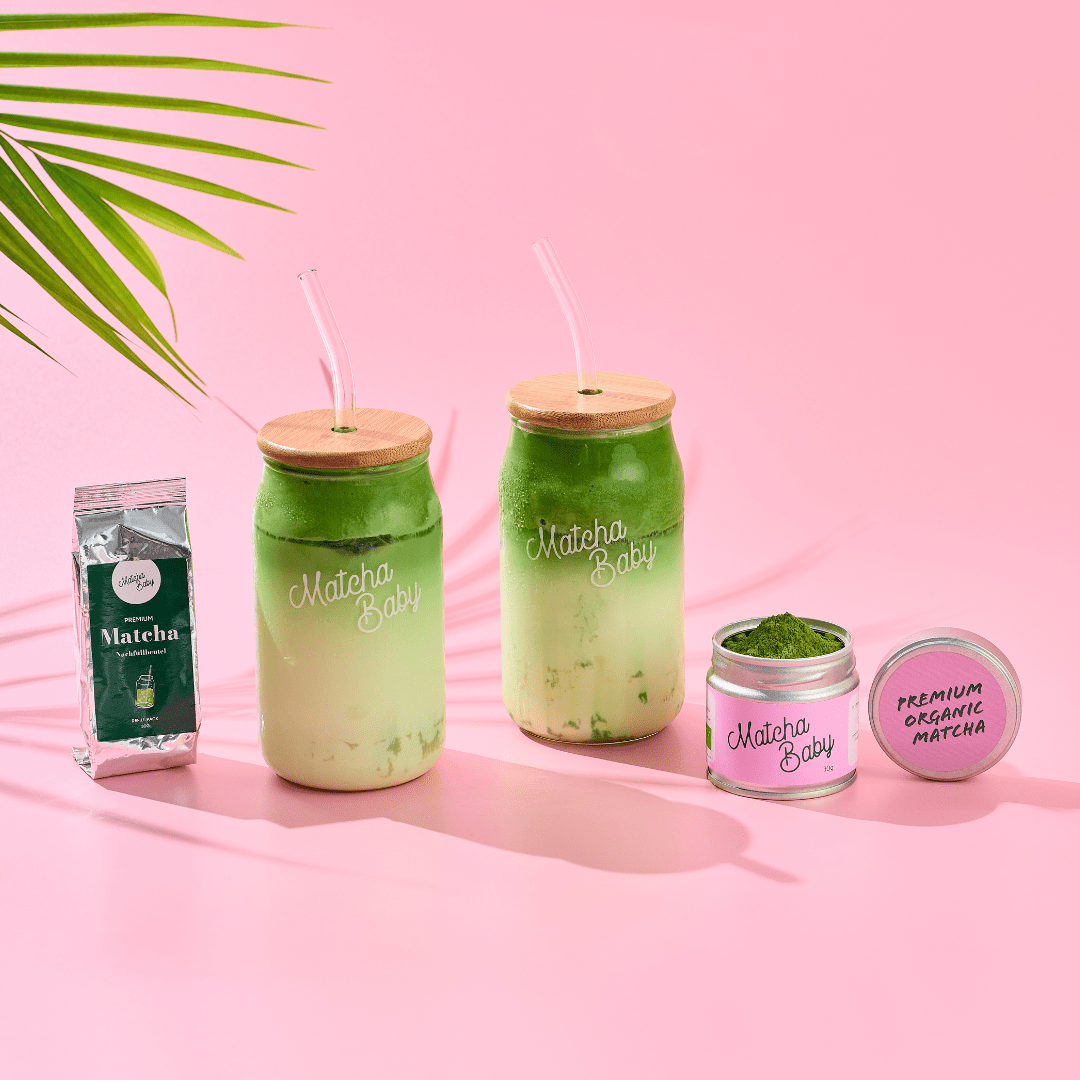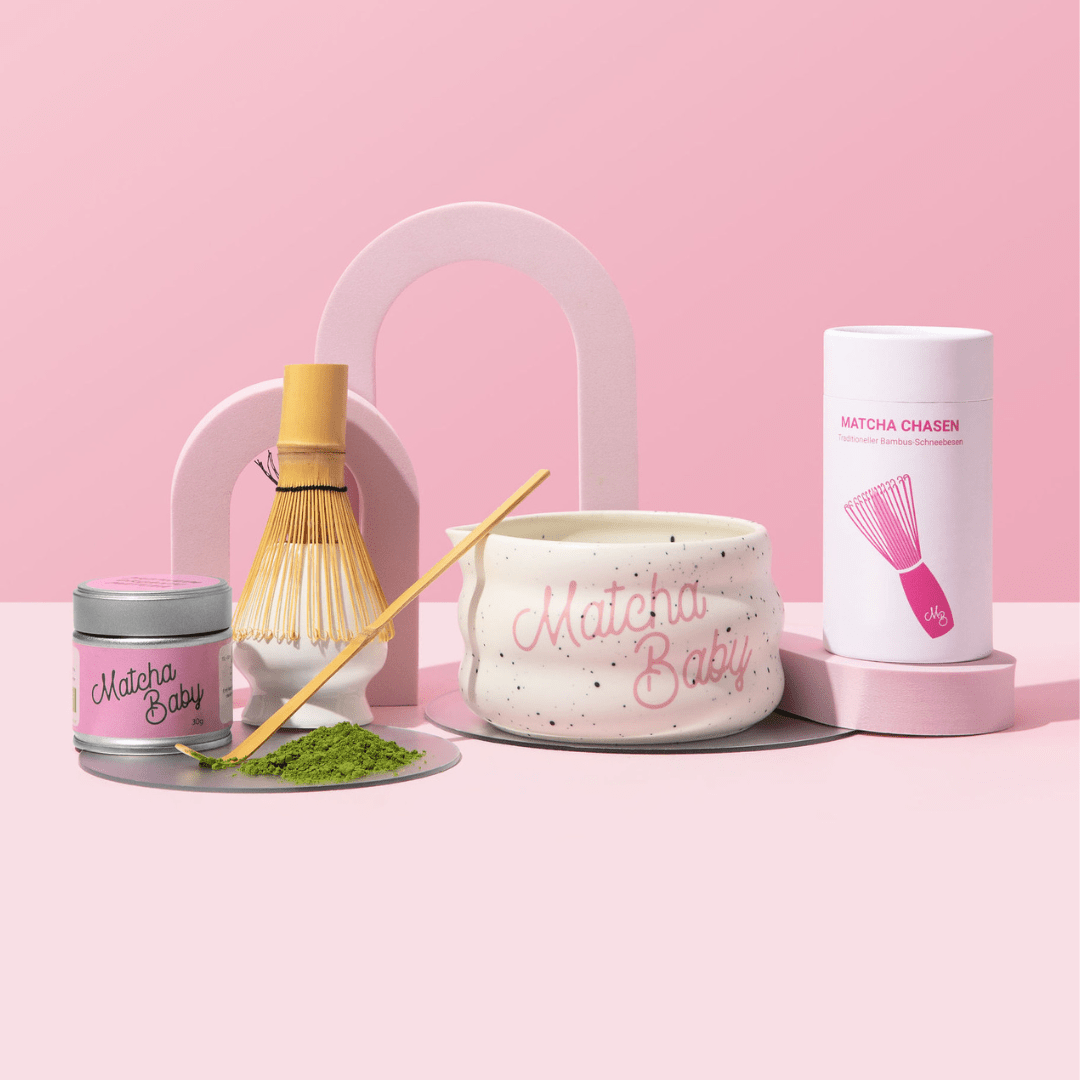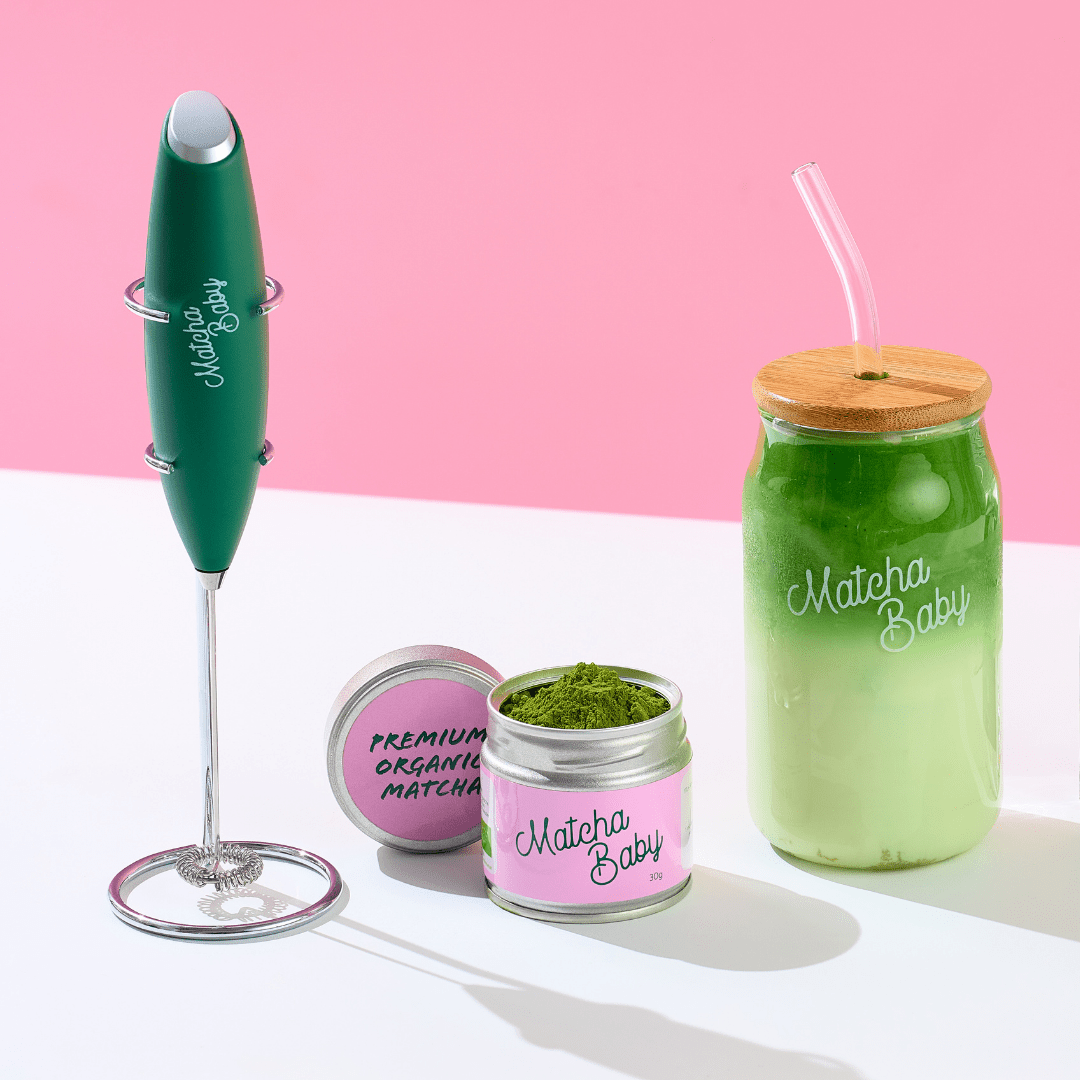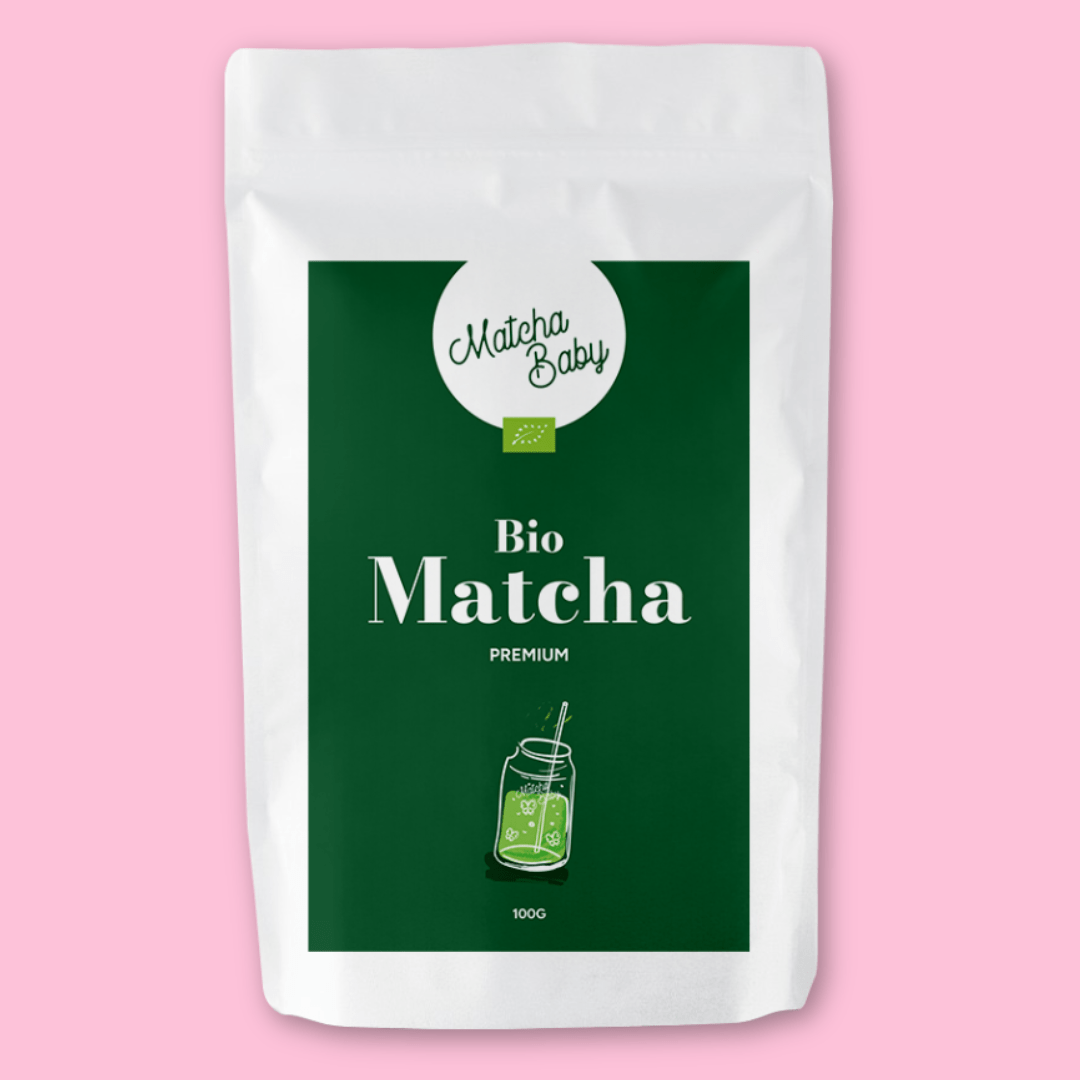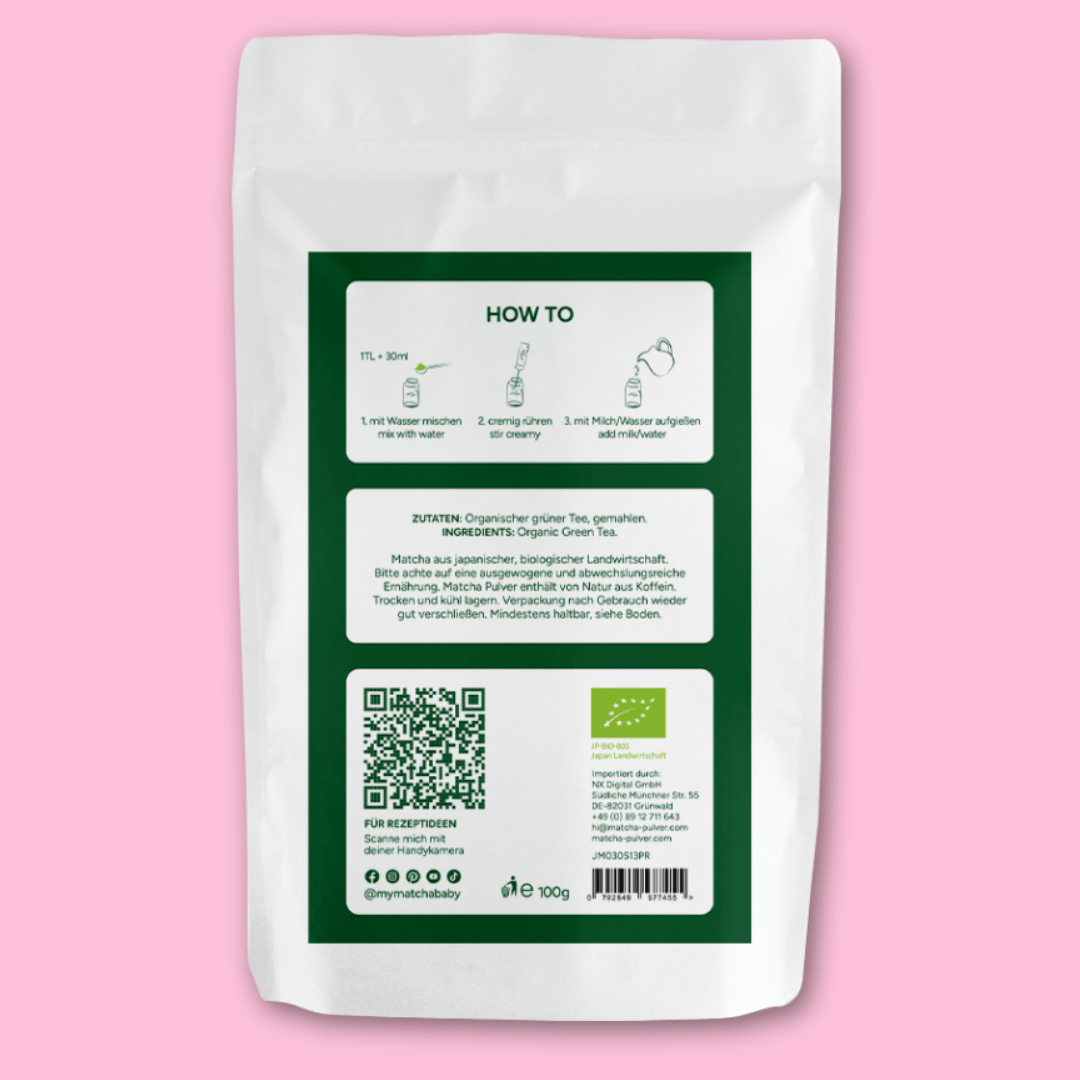Matcha is popular not only for its vibrant green color, but also for its many health benefits and valuable ingredients. Matcha can also serve as an alternative to coffee.

Gentle, long-lasting energy boost
Like coffee, matcha contains caffeine, but in a more balanced dosage. With approximately 70 mg of caffeine per serving, matcha provides a gentle energy boost that lasts for hours, without the common side effects of a cup of coffee, such as jitters or the notorious energy crash. The caffeine in matcha is released more slowly thanks to the amino acid L-theanine, resulting in a relaxed alertness without the jitters often felt after coffee consumption.
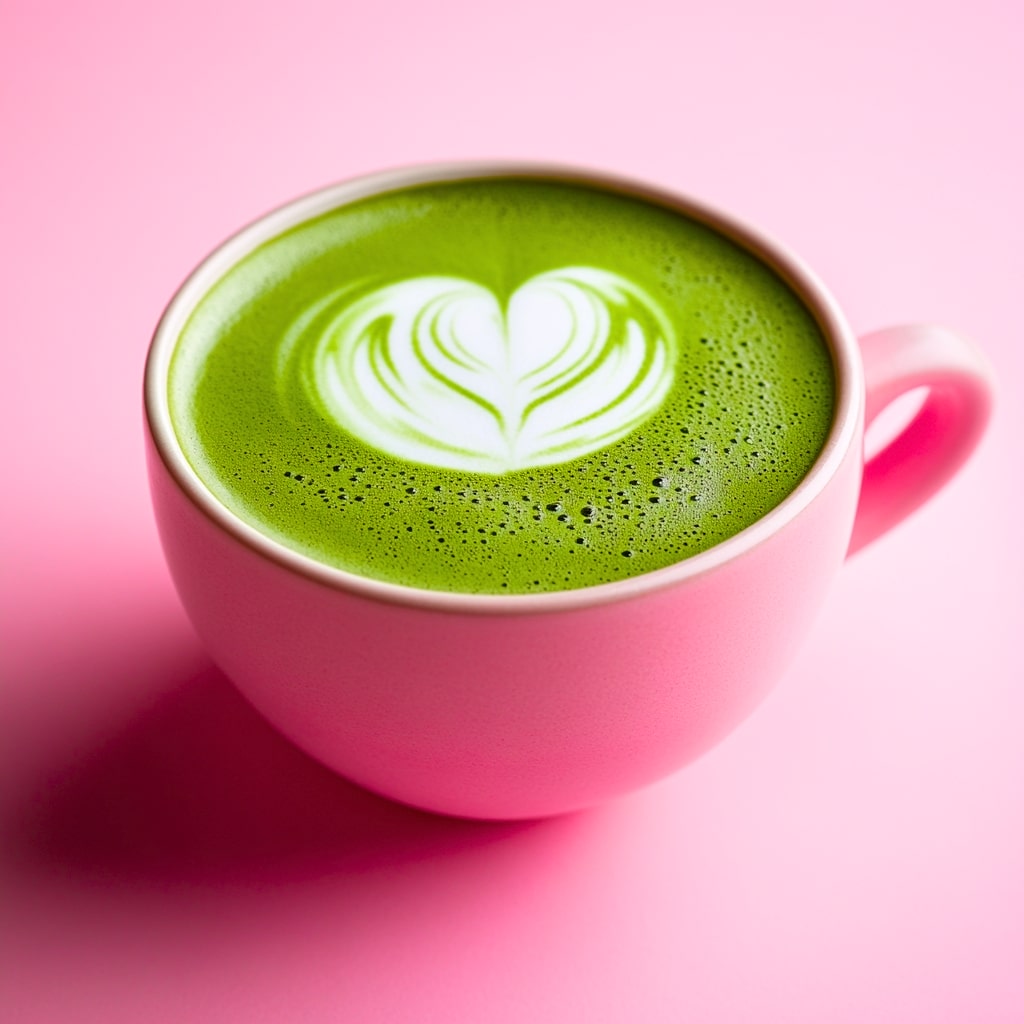
Rich in antioxidants
Matcha stands out for its high antioxidant content, particularly epigallocatechin gallate (EGCG), which offers wide-ranging health benefits and a stimulating effect, including cardiovascular support and potential anti-cancer properties. Compared to coffee, which also contains antioxidants, matcha offers a more potent source of these vital molecules that protect the body from free radical damage.
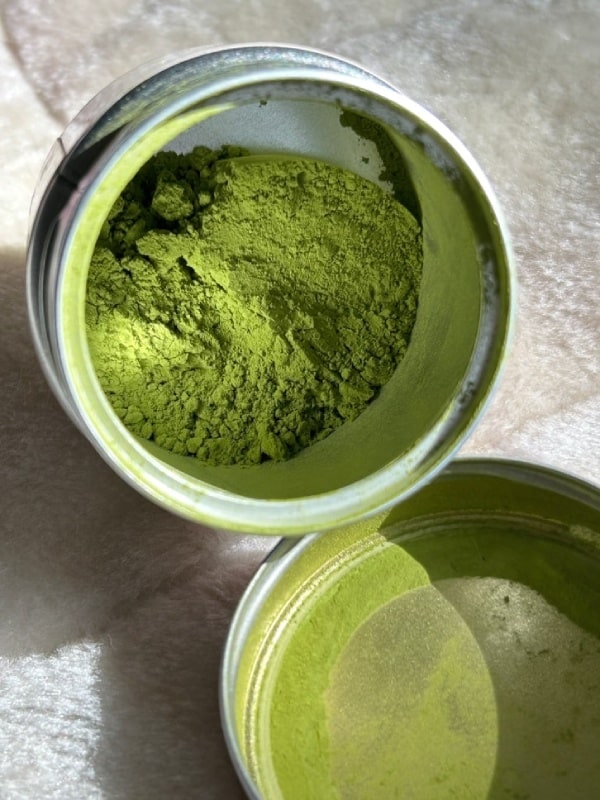
Improvement of mental functions
The unique combination of caffeine and L-theanine in a cup of matcha improves focus and clarity of mind without the side effects often associated with high caffeine consumption. Studies have shown that L-theanine promotes alpha brainwaves, which support relaxation and creativity. This makes matcha an ideal drink for people who need mental stamina, whether for work or study.
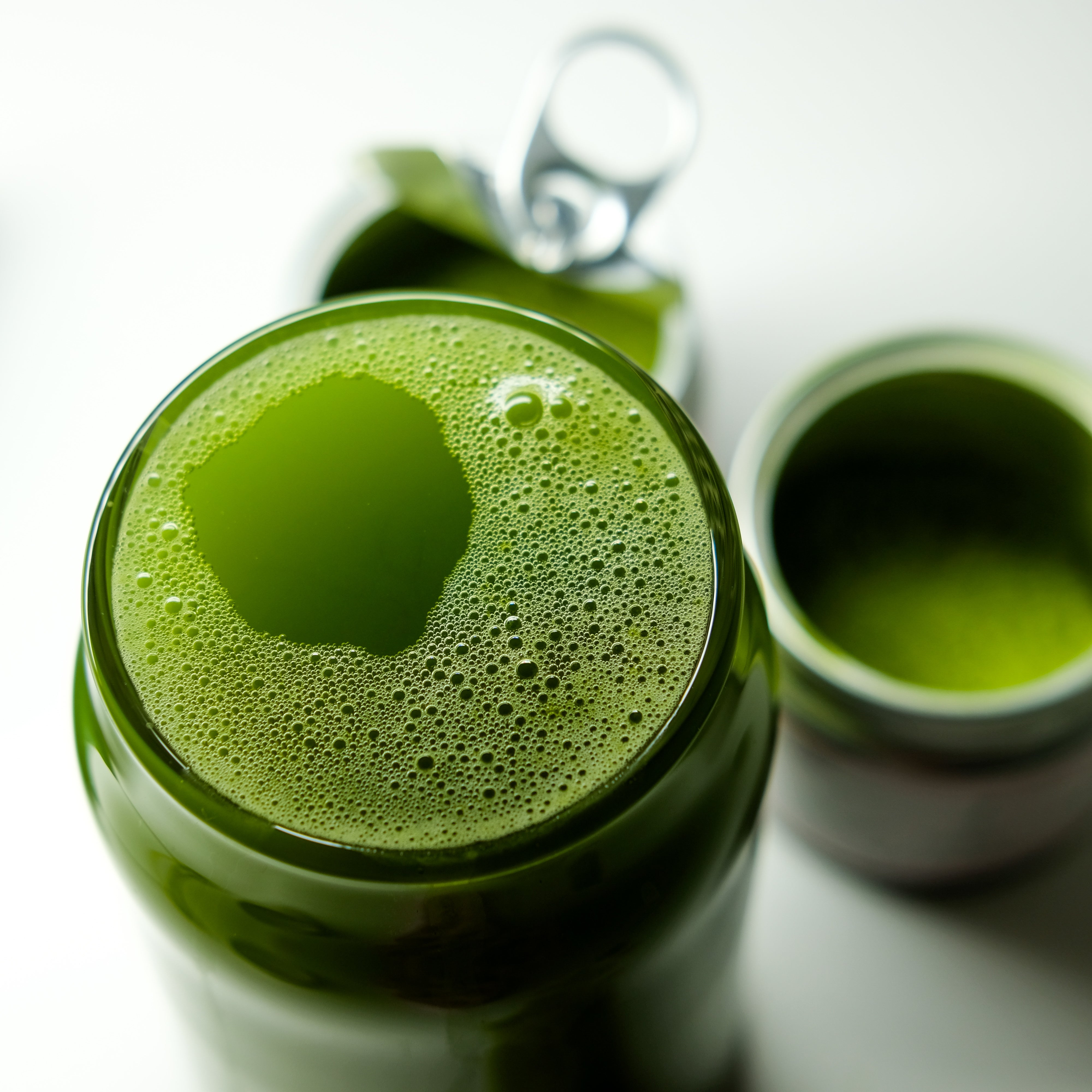
Good for skin and digestion
Matcha has anti-inflammatory properties and is rich in chlorophyll, which not only gives it its intense green color but also supports the body's detoxification process. These properties can have a positive effect on maintaining healthy skin and promoting a radiant complexion. Furthermore, unlike coffee, matcha is alkalizing and can thus help maintain a healthy pH level in the digestive system.

sustainability
Although both matcha and coffee are grown on farms, matcha cultivation often has a lower environmental impact. Matcha requires less land to grow and is often produced more sustainably. Many matcha farms practice traditional farming methods that place less strain on the soil and are kinder to the environment.
By choosing matcha, you are not only choosing a delicious and healthy drink, but also a more conscious lifestyle.
Matcha Baby Shop
